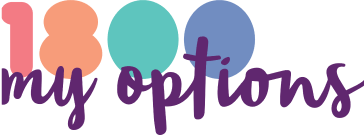
Menopause symptoms
Changes to your regular menstrual period could be a sign that you are entering perimenopause, the phase of transitioning to menopause. It is common for women to experience symptoms during this time, though these are not always bothersome.
Common menopause symptoms
- Hot flushes and night sweats (most severe in the year around the final period)
- Trouble sleeping
- Tiredness
- Pain in your joints
- Dry vagina
If you are concerned about your symptoms, it is important to speak to a doctor. You can also read more information on common symptoms on the Australian Menopause Society website.
Other changes in our bodies as we age – what’s the link to menopause?
There are a few changes that may occur to our bodies as we age that are often ‘blamed’ on menopause, however the links are much less direct. Nonetheless, these changes can be distressing, and if so it’s important to seek help and support.
A common myth is that menopause contributes to weight gain, however this is not the case – weight gain occurs throughout life. Rather, menopausal hormonal changes may influence where this occurs. During and after menopause weight gain may be more noticeable around the stomach rather than hips, thighs, and buttocks as in younger women.

Problems with urinary incontinence and pelvic organ prolapse (uterus, vagina or bladder) are more common as women get older but are not due to menopause. The main risk factors for urinary incontinence and prolapse are ageing and vaginal birth, as well as smoking, higher body weight, constipation, and previous pelvic surgery. Menopausal Hormone Therapy can increase the risk of urinary incontinence – something to be aware of for those of us considering MHT.
Finally, mental health can decline during the menopause transition for some people. The evidence is very mixed on this issue as there are many different factors involved, including:
- whether you have experienced depression previously (this may increase your chances of depression recurring during menopause),
- how bothersome your menopausal symptoms are and whether you can find helpful ways of managing them,
- how well-supported you are, and
- what else is happening in your life.
To find out more, see our section on Mental health and menopause.
The good news is that, if you are finding any of these changes are bothering you, there are things you can do. A few suggestions are below:
- See our sections on Eating for women’s wellbeing as we age and Physical activity.
- Treatments for urinary incontinence and pelvic organ prolapse include pelvic floor exercises, physiotherapy and surgery. You can read more about these issues as they affect women on the Continence Foundation of Australia website.
- For information about looking after your mental health, please see Supporting good mental health as we age.
Australasian Menopause Society (2017) Menopause what are the symptoms?
Australasian Menopause Society (2019) Lifestyle and behavioural modifications for menopausal symptoms.
Australasian Menopause Society (2022) What is menopause?
Alspaugh A, Im E-O, Reibel M, Barroso J (2021) The reproductive health priorities, concerns, and needs of women in midlife: a feminist poststructuralist qualitative analysis. Qualitative Health Research. 31(4): 643-653
Calvaresi E, Bryan J (2003) Symptom experience in Australian men and women in midlife. Maturitas. 44(3): 225-36
Cheung AS, Nolan BJ, Zwickl S (2023) Transgender health and the impact of ageing and menopause. Climacteric. 26(3): 256-262
Continence Foundation of Australia (2021) Who it affects
Glyde T (2021) How can therapists and other healthcare practitioners best support and validate their queer menopausal clients?. Sexual and Relationship Therapy
Haggan M (2019) Breaking the taboo: the real story of menopause. AJP: The Australian Journal of Pharmacy. 100(1181): 44-48
Health Talk Australia (2023) Early menopause experiences and perspectives of women and health professionals
Hickey M (2022) Normalising menopause. The British Medical Journal. 377(e069369)
Hoga L, Rodolpho J, Gonçalves B, Quirino B (2015) Women's experience of menopause: a systematic review of qualitative evidence. JBI Database System Rev Implement Rep. 13(8), 250-337
Lobo RA, Gompel A (2022) Management of menopause: a view towards prevention. The Lancet: Diabetes and Endocrinology. 10(6): 457-470
Magraith K, Stuckey B (2019) Making choices at menopause. Australian Journal of General Practice. 48(7): 457-462
Multicultural Centre for Women’s Health (2023) Menopause fact sheets in eleven languages
My Meno Plan (2020) What if I am transgender or non-binary?
North American Menopause Society (2023) Instant help for induced menopause
North American Menopause Society (2023) Urinary incontinence
Philpott L (2017) OTC: Women's health: a time for change: post menopausal health. AJP: The Australian Journal of Pharmacy. 98(1159)
Philpott L (2022) Menopause: supporting women in midlife and beyond. AJP: The Australian Journal of Pharmacy. 103(1213): 54-56, 58





